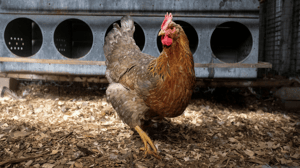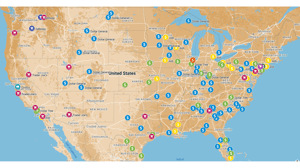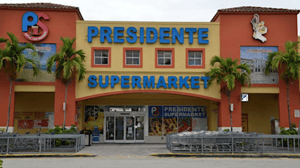A forum for contributed pieces from industry thought leaders, retailers, wholesalers and manufacturers. The views expressed are those of the authors.
Produce Popularity Comes With Responsibility
Each time an outbreak occurs it does damage to consumer confidence.
September 22, 2012
It’s a good time for produce. Michelle Obama has been telling the nation to eat its vegetables; half the plate has been officially been reserved for fruit and veggies; and even fast food chains have been moving to add more produce to their menus.
 On top of that, local farmers are cool again. Just look at the spread of community supported agriculture and initiatives like Weis Markets’ “Your Neighbors, Our Farmers” produce campaign launched last year that celebrates farmers with promotional photos.
On top of that, local farmers are cool again. Just look at the spread of community supported agriculture and initiatives like Weis Markets’ “Your Neighbors, Our Farmers” produce campaign launched last year that celebrates farmers with promotional photos.
However, there’s one thorn in the produce industry’s side: foodborne illness outbreaks.
Just this August there were 105 cases of salmonella in 16 states associated with Daniella brand mangos from Splendid Products of Burlingame, Calif., and 204 salmonella cases and two deaths linked to cantaloupes from Chamberlain Farms, Owensville, Ind., according to the Centers for Disease Control.
I have to admit, even though I knew the tainted cantaloupes were sourced from Indiana, I gave a wide berth to a pile of California cantaloupes when I was shopping last month. I’m sure I wasn’t alone.
SN Poll: Who should be responsible for enforcing proper food safety practices for produce?
Even though the majority of produce is safely handled, each time an outbreak occurs it does damage to consumer confidence. At the height of produce’s popularity, it’s critical that the industry pay close attention to the implementation of proper food safety practices.
Before the details of the recent outbreaks came out, Robert Whitaker, chief science and technology officer at the Produce Marketing Association, told me about the recent progress on cantaloupe-focused food safety research and guidance development.
As reported last month by SN, he suggested that last year’s Jensen Farms cantaloupe-linked deadly listeria outbreak, the Indiana outbreak and a North Carolina Burch Farms melon recall weren’t caused by unknown food safety issues.
REFRESH Blog: Audits a Private-Label Priority
“From what we know, there wasn’t a lack of knowledge that was the problem, it was really a lack of execution against things that we already know are good food safety practices,” he said.
He urged buyers and producers to not wait for formal food safety training, but to access information now in the cantaloupe guidance webinars and on the website cantaloupe-guidance.org.
If the entire industry takes advantage of the food safety resources available now, it can make sure consumers associate fruits and vegetables with health, not illness.
About the Author
You May Also Like








